Content from the Brookings Doha Center is now archived. In September 2021, after 14 years of impactful partnership, Brookings and the Brookings Doha Center announced that they were ending their affiliation. The Brookings Doha Center is now the Middle East Council on Global Affairs, a separate public policy institution based in Qatar.
TRUMP ADMINISTRATION WELCOMES EMIR OF QATAR
On Tuesday, April 10, President Trump met with Qatar’s Emir, Sheikh Tamim bin Hamad al-Thani and discussed the relationship between the United States and Qatar, with Trump stating that Qatar had now become an “advocate” in the combat against terrorism.
KUWAIT SAYS NOT RESOLVING THE GCC CRISIS IS DESTRUCTIVE TO THE REGION
On Tuesday, April 24, Kuwait’s deputy foreign minister, Khaled al-Jarallah, said the Gulf Cooperation Council (GCC) member-states were determined to resolve the ongoing crisis in the Gulf because not doing so would be destructive to the region. Al-Jarallah warned that the crisis threatened to derail the work of numerous GCC initiatives.
HOUTHI POLITICAL CHIEF SALEH SALEH AL-SAMMAD KILLED IN SAUDI AIR RAIDS
A Houthi-run Al-Masirah TV network reported on Monday, April 23, that Saleh al-Sammad, political leader of Yemen’s Houthi rebels has been killed in Saudi-led air strikes in the Hudaydah province. Al-Sammad was the president of the Supreme Political Council that runs Yemen’s capital, Sanaa, and other rebel-held areas. He died on Thursday. There was no immediate comment by the Saudi-led coalition. The group said it had elected Mahdi al-Mashat as al-Sammad’s successor.
A day before, Saudi-led coalition attacks in Yemen had killed at least 20 people, many of whom were women and children in a wedding tent, in Hajjah’s Bani Qays district. According to a medical official, at least 46 people, including 30 children, were wounded in the attack.
CATHOLIC CARDINAL MEETS SAUDI KING IN HISTORIC VISIT TO RIYADH
On Wednesday, April 18, Saudi Arabia’s King Salman met French cardinal Jean-Louis Tauran in Riyadh, according to Saudi state news agency, SPA. The meeting between the Saudi king and Tauran, who is the head of the Vatican’s Pontifical Council for Interreligious Dialogue, is the first between the current Saudi ruler and a Catholic official. The visit is the latest in a series of meetings between senior Saudi officials and representatives of the Catholic Church in recent months.
DIPLOMATIC LEAKS: UAE DISSATISFIED WITH SAUDI POLICIES
Al Akhbar, a Lebanese newspaper, said that it has obtained leaked documents that contained secret diplomatic briefings sent by the Emirati and Jordanian ambassadors in Beirut to their respective governments. One of the documents, issued on September 20, 2017, disclosed the outcome of a meeting between Jordan’s ambassador to Lebanon Nabil Masarwa and his Kuwaiti counterpart Abdel-Al al-Qenaie.
“The Crown Prince of Abu Dhabi Sheikh Mohammed bin Zayed is working on breaking up the Kingdom of Saudi Arabia,” the Jordanian envoy quoted the Kuwait ambassador as saying. The document said the Jordanian ambassador informed his government that the UAE believes “Saudi policies are failing both domestically and abroad, especially in Lebanon.”
SAUDI IN TALKS WITH US OVER TROOP DEPLOYMENT IN SYRIA
Saudi Arabia’s foreign minister, Adel al-Jubeir, has said the country is holding talks with the United States about sending troops into Syria as part of a wider international coalition. In his comments, al-Jubeir said the deployment offer was “not new”, adding that Riyadh had previously proposed the idea to former U.S. President Barack Obama.
The announcement follows recent comments by U.S. President Donald Trump over future American involvement in Syria. Earlier this month Trump said he wanted to “get out” of Syria, without specifying a timetable for pulling out U.S. troops. He expressed his intent to assemble an Arab force that would replace the U.S. military presence in Syria and would include the countries of Saudi Arabia, Egypt, and the United Arab Emirates.
QATARI FORCES PARTICIPATE IN GULF SHIELD DRILL IN SAUDI ARABIA
The Qatari armed forces have participated in the “Joint Gulf Shield 1” Drill in the Kingdom of Saudi Arabia, Qatar News Agency(QNA) said. The military drill was conducted in the town of Ras Al Khair, north of Jubail city in the eastern region of the kingdom, from March 21 to April 16, QNA quoted the defense ministry as saying.
According to QNA, the closing ceremony was attended by the Qatar Armed Forces’ Chief of Staff, Major General Ghanem bin Shaheen al-Ghanem, at the invitation of his Saudi counterpart Lt General Fayyad bin Hamed al-Ruwayli.
SAUDI FOREIGN MINISTER FOLLOWS TRUMP’S STATEMENT, SAYING QATAR MUST PAY FOR TROOPS IN SYRIA
Saudi Arabia’s foreign minister Adel al-Jubeir saidQatar must pay for the U.S. military presence in Syria if it wants to sustain Washington’s support. He made these remarks hours after President Donald Trump said that some “immensely wealthy” countries in the Middle East have to pay for American protection and deploy their own troops in Syria. Speaking at a news conference with French President Emmanuel Macron on Tuesday, Trump said these countries “wouldn’t last a week” without U.S. support. “ Countries that are in the area, some of which are immensely wealthy, would not be there except for the United States, and to a lesser extent France,” Trump said.
Trump did not name the countries but stressed that “they will pay” before adding that “they will also put soldiers on the ground.” Trump seemed to backtrack on an earlier decision to withdraw U.S. forces from Syria, when he stressed on Tuesday that it was important to prevent the expansion of Iranian influence in the region.
Al-Jubeir said the “[Qatari] regime would fall there in less than a week” if the U.S. pulls its troops out of Qatar. “Qatar has to pay for U.S. military presence in Syria and send its military forces there, before the U.S. president cancels U.S. protection of Qatar, which hosts a [U.S.] military base on its lands,” al-Jubeir said in a statement carried by the official Saudi Press Agency (SPA) on Thursday.
POMPEO ARRIVES IN SAUDI ARABIA TO SEND MESSAGE ON QATAR BLOCKADE
On Saturday, April 28, Mike Pompeo flew to Saudi Arabia and met with Foreign Minister Adel Al-Jubeir and Crown Prince Mohamed Bin Salman. During the meeting, the subject of the Qatar blockade was discussed. According to an unnamed, but authorized, senior state department official, Pompeo advised Al-Jubeir to end the blockade with Qatar. This came on the heels of President Trump’s meeting with Qatar’s Emir Tamim bin Hamad al-Thani, in which Trump conveyed support for the country, despite his earlier stance in which he seemingly supported the Saudis in the blockade. Pompeo also discussed the humanitarian crisis in Yemen, where he informed Al-Jubeir that Yemen must have better access to supplies.
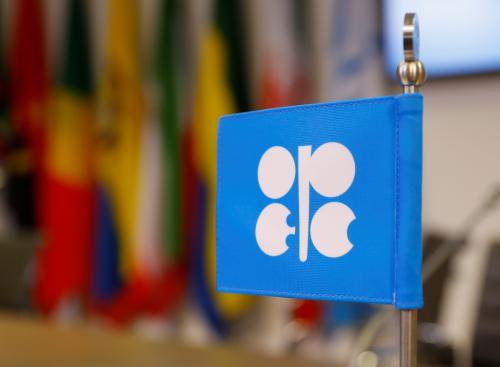
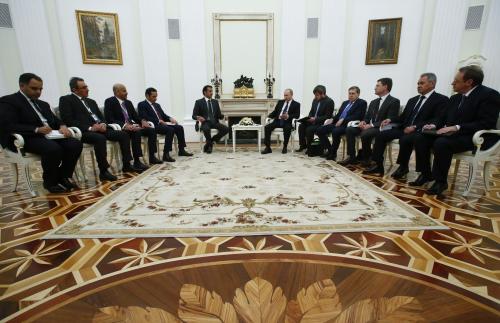
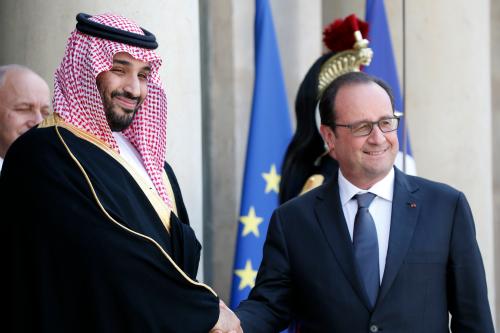

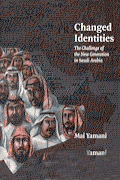
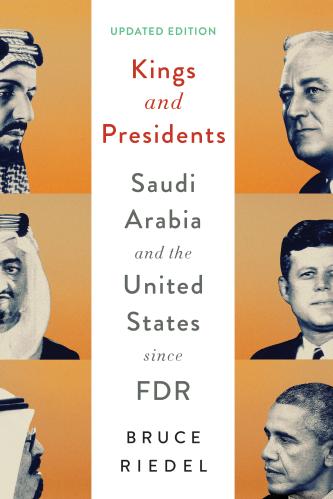



Commentary
GCC News Roundup: Trump meets with Emir of Qatar, Kuwait says Gulf crisis must end, Houthi political chief killed, (April 1-30)
May 1, 2018